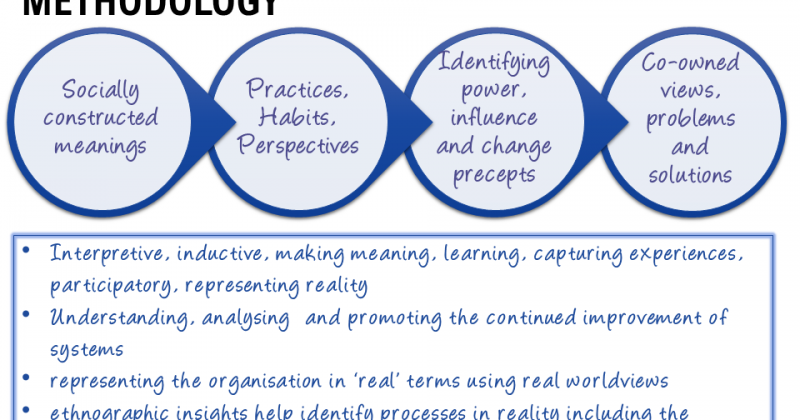
Ethnographies and Soft System Methodologies
Work environments are characterised by people doing purposeful activity in a structured yet dynamic, orderly yet disorderly environment where there are legislative, procedural, political and social factors that are widely known to influence the design of information systems (IS) and knowledge management (KM) systems for policing work(Stainer, 2013, Hughes and Jackson, 2004).
Most workplaces generate significant amounts of data, often collated/acquired from multiple human sources and information systems (IS). Managing the business is as a result, characterised by matching and aggregating all this information and data to facilitate and make informed best practice decisions (Babuta, 2017).
Business leaders will depend on timeliness and robustness of this information to develop efficient and effective strategies. There is a however a complicatedness that arises due to the use of varied and non-proprietary information systems for managing data and information (De Hert and Gutwirth, 2006).
The ethnographic research methodology is known for 'messiness' (Lanclos, 2016) and characterised by lengthy contact through immersion in the field (workplace) and...
